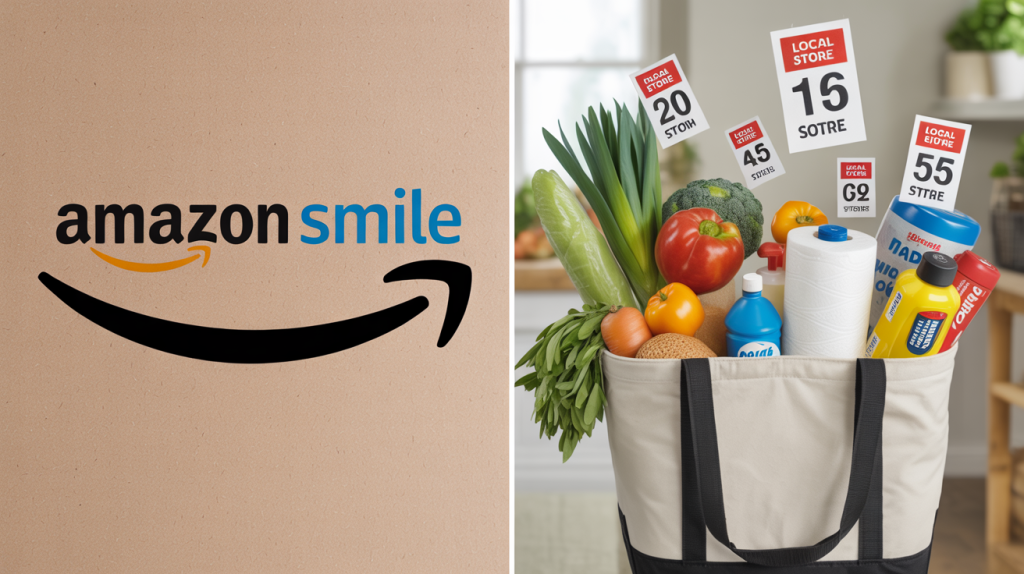Many of us have spent years mastering the art of smart grocery shopping, always looking for ways to get the best value without sacrificing quality. One tried-and-true strategy for significant food savings is to buy in bulk, especially when it comes to non-perishable pantry staples. While it might seem like a larger upfront cost, the per-unit price is often much lower when you purchase larger quantities of items you use regularly. This is one of those classic grocery hacks that can really make a difference to your monthly budget, particularly if you have adequate storage space and are mindful about using what you buy.
This article isn’t about filling your home with more than you can use; it’s about strategically purchasing common pantry items that have a long shelf life and are consistently cheaper in larger packages. For seniors who may be on a fixed income or simply appreciate prudent spending, knowing which staples offer the best bulk savings can be very beneficial. Let’s explore some items that are almost always a better deal when bought in larger quantities.
A friendly reminder: Always check the unit price (e.g., price per ounce, per pound, or per item) to confirm you’re truly getting a better deal with the bulk option. Also, ensure you have proper storage to keep bulk items fresh.
1. Rice (White, Brown, Basmati, etc.)
Rice is a staple in countless cuisines and a versatile, affordable carbohydrate. Whether you prefer long-grain white rice, nutritious brown rice, or aromatic basmati, buying it in larger bags (e.g., 5, 10, or even 20 pounds) is almost always much cheaper per serving than buying small one-pound bags or boxes.
Why it’s a bulk buy winner: Dried rice has an incredibly long shelf life when stored properly in an airtight container in a cool, dark place. The savings per pound can be substantial. Many of us grew up in households where a large sack of rice was a pantry fixture, and for good reason!
Storage tip: Transfer rice from its original bag to an airtight food-grade container to protect it from moisture and pests.
2. Dried Beans and Lentils
Dried beans (like black beans, kidney beans, pinto beans) and lentils are nutritional powerhouses – packed with protein and fiber – and are incredibly inexpensive, especially when purchased in bulk bags rather than cans. Canned beans offer convenience, but dried beans offer superior value and often better texture and flavor once cooked.
Why it’s a bulk buy winner: A one-pound bag of dried beans can yield the equivalent of 3-4 cans of cooked beans, often at less than half the cost. Like rice, dried legumes have a very long shelf life when stored correctly. Soaking and cooking dried beans might take a bit more time, but the cost savings and taste can be well worth it. Many seniors appreciate the health benefits and affordability of incorporating more legumes into their diet.
Storage tip: Store in airtight containers in a cool, dark place.
3. Pasta (Dried Varieties)
Spaghetti, penne, macaroni, lasagna noodles – dried pasta is a pantry essential for quick and satisfying meals. Larger bags or multi-packs of pasta are frequently much cheaper per ounce than smaller, single-meal-sized boxes.
Why it’s a bulk buy winner: Dried pasta lasts for a very long time (years, in fact, if stored properly). If your family enjoys pasta dishes, or if you like to have it on hand for easy meals, buying in bulk when it’s on sale at warehouse clubs or in larger supermarket packages makes a lot of sense. This is a simple way to achieve food savings on a versatile ingredient.
Storage tip: Keep in its original packaging or transfer to airtight containers to prevent it from absorbing odors or moisture.
4. Oats (Rolled Oats or Steel-Cut Oats)
Oats are a healthy, versatile, and budget-friendly breakfast option. They can also be used in baking, smoothies, or to make homemade granola. Buying oats in larger canisters or bags is significantly more economical than purchasing individual serving packets or small boxes.
Why it’s a bulk buy winner: Plain rolled oats or steel-cut oats have a good shelf life. The cost per serving from a large container is much lower than pre-portioned instant oatmeal packets, which often contain added sugars and artificial flavors anyway. Making your own oatmeal allows you to control the ingredients and save money. Many seniors enjoy a warm bowl of oatmeal for its health benefits and ease of preparation.
Storage tip: Store in an airtight container to maintain freshness and prevent pests.
5. Flour and Sugar (If You Bake or Use Them Regularly)
For those who enjoy baking or use flour and sugar frequently in their cooking, purchasing these in larger bags (e.g., 5 or 10 pounds) offers better value than smaller bags. These are fundamental grocery hacks for home bakers.
Why it’s a bulk buy winner: The price per pound for flour and sugar drops noticeably with larger sizes. If you have the pantry space and will use them before they lose quality (flour can go stale over a very long time, but sugar lasts almost indefinitely if kept dry), bulk is the way to go. Many of us learned to bake from scratch, and having these staples on hand encourages home baking, which is often healthier and cheaper than store-bought baked goods.
Storage tip: Transfer to airtight, food-grade containers to protect from moisture, pests, and absorbing odors. Whole wheat flour has a shorter shelf life than white flour and is best stored in the refrigerator or freezer if buying in large quantities.
6. Coffee Beans or Ground Coffee (If You’re a Regular Drinker)
If you enjoy a daily cup (or more) of coffee, buying whole beans or ground coffee in larger bags from warehouse clubs, online retailers, or when your favorite brand is on sale can lead to significant savings compared to buying small bags frequently.
Why it’s a bulk buy winner: The cost per ounce for coffee is almost always lower in larger packages. While freshness is a concern for coffee connoisseurs, you can maintain freshness by storing beans or grounds properly (see tip below). The savings for a daily coffee drinker can easily amount to $10-$20 or more per month.
Storage tip: For whole beans, store them in an airtight, opaque container at room temperature and grind just before brewing. For ground coffee, if you buy a large bag, consider dividing it into smaller airtight portions, freezing some, and keeping only a week’s worth at room temperature to maintain maximum freshness.
7. Spices (If You Use Specific Ones Frequently)
While buying a huge container of every spice isn’t practical (as they lose potency over time), if there are certain spices you use very frequently (like black peppercorns, garlic powder, onion powder, cinnamon, or a favorite blend), purchasing these in larger containers from a bulk section, warehouse club, or ethnic grocery store can be much cheaper than buying tiny jars at the supermarket.
Why it’s a bulk buy winner (for high-use spices): The markup on those small supermarket spice jars is enormous. Buying in larger quantities can reduce the per-ounce cost dramatically. Just be realistic about how much you’ll use within 6-12 months to ensure they remain flavorful.
Storage tip: Store spices in airtight containers away from heat, light, and moisture to preserve their flavor and aroma. Consider sharing a bulk spice purchase with a friend or family member if you won’t use it all yourself.
8. Nuts and Seeds (If Stored Properly)
Nuts (like almonds, walnuts, pecans) and seeds (like flax, chia, sunflower) are nutritious additions to your diet but can be pricey. Buying them in bulk, especially when on sale, can offer good savings, provided you store them correctly to prevent them from going rancid due to their high oil content.
Why it’s a bulk buy winner: The per-pound cost is usually lower for larger bags. These are great for snacking, adding to oatmeal or salads, or for baking. Many seniors are mindful of including healthy fats and nutrients from nuts and seeds in their meals.
Storage tip: Nuts and seeds are best stored in airtight containers in the refrigerator or freezer to extend their shelf life significantly and prevent them from becoming rancid. Only keep a small amount at room temperature for immediate use.
9. Olive Oil and Other Cooking Oils (If Used Regularly)
If you use a good amount of olive oil or other cooking oils (like canola, vegetable, or coconut oil), purchasing them in larger tins or bottles from warehouse clubs or when on sale at the supermarket can be more economical than buying small bottles repeatedly.
Why it’s a bulk buy winner: The price per fluid ounce is generally lower for larger containers. Since cooking oil is a frequently used item in most kitchens, these savings can be consistent.
Storage tip: Store oils in a cool, dark place away from heat and light to prevent them from going rancid. If you buy a very large tin of olive oil, you might decant some into a smaller, dark glass bottle for everyday use to keep the bulk supply sealed longer.
10. Canned Tomatoes (Diced, Crushed, Sauce, Paste)
Canned tomato products are incredibly versatile for making sauces, soups, stews, and many other dishes. Buying them by the case or in larger multi-packs when they are on sale is a smart move.
Why it’s a bulk buy winner: Canned goods have a very long shelf life, and tomato products are a kitchen workhorse. The price per can is often significantly lower when bought in bulk or during case lot sales. This is a simple way to ensure you always have a key ingredient on hand for many favorite recipes, including those passed down through generations.
Storage tip: Store in a cool, dry pantry. Check for dents or bulging cans before purchasing or using.
11. Toilet Paper and Paper Towels
These are household necessities that you will always need. Buying them in large multi-packs from warehouse clubs or when your preferred brand is deeply discounted at the supermarket offers substantial savings per roll/sheet compared to smaller packages.
Why it’s a bulk buy winner: They don’t expire, and the unit cost savings are usually very good. The main consideration is having enough storage space for these bulky items. Many seniors appreciate the convenience of having a good stock on hand, reducing the frequency of shopping trips for these essentials.
Storage tip: Store in a dry place, away from potential moisture (like under a leaky sink).
12. Pet Food (If You Have Furry Companions)
If you have pets, their food is a regular and significant expense. Buying larger bags of dry kibble or cases of wet food (if it has a good shelf life) is almost always cheaper per pound or per can than buying smaller quantities.
Why it’s a bulk buy winner: The savings on pet food can be considerable over the life of your pet. Just ensure the bulk size is appropriate for your pet’s consumption rate so the food stays fresh. Many pet-loving seniors find this an easy way to manage costs associated with their beloved companions.
Storage tip: Store dry pet food in an airtight container to maintain freshness and prevent pests. Check expiration dates on wet food when buying in cases.
The strategy to buy in bulk for these pantry staples is a classic for a reason – it works! By planning ahead, paying attention to unit prices, and ensuring proper storage, you can make your grocery budget go much further. These simple grocery hacks for achieving food savings are all about being a smart, resourceful consumer, a skill many of us have cultivated and can continue to refine.















